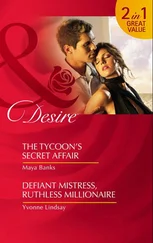What had I said? Perhaps the artist was so dazzled by Florence and the slums of Ognissanti that he hated to hear the wonders of other towns. And yet it had been he who had mentioned Venice’s beauty. I babbled, trying to retract. “Of course, Florence is the fairest city of them all. The Duomo, the Baptistery, your own fair paintings.” But it didn’t work. He crossed the room in a flash and grabbed my chin again, this time with real violence. I could not breathe.
“Say it again.”
I was badly frightened and could hardly speak. My confused brain leaped and circled like a coney as I tried to remember my words. “I said that Venice was greater than Pisa or Naples and Genoa, and—”
His fingers bit deeper. “What do you know of these places? Who told you?”
“Told me what?” I choked the question through gritted teeth, for his hand still gripped my jaw fast.
His gray eyes bored into mine like bolts. “Who put you up to this? Was it Bembo?”
“What? No one told me anything! What do you mean?” For the second time that day, I felt tears prick my eyes. But as quickly as I had been captured, I was suddenly freed. Abruptly he let me go and turned away, as if he were too angry to trust himself. My knees gave way and the painted dress fell about me in a great silken bubble as I sank to the ground. I was shaking still. When he turned back, he was smiling .
“I’m sorry, my dear,” he said. “Just a bit of fun after a long day. Did you enjoy my jest?”
Now I have seen plenty of bad actors. I live in Florence, don’t forget. Dreadful players litter the streets and offend the air with their posturing and wailing. But I’ve never seen a less convincing performance than the one I was watching now. He held out a hand and I took it as he hauled me to my feet. “Just a little joke about our maritime states. No need to mention this to Bembo. Get changed, signorina. You can go.”
Bewildered, I took myself behind the screen, playing the scene in my head. Something had gone badly awry, but I was more frightened by the sequel to the violent episode than the violence itself—the denial of his anger, the cover-up of any offense. I heard the artist leave the room and the door close behind him. Fear left with him. Then, in the safety of my solitude, hidden from sight behind the screen, I began to get angry. I stripped the dress off as if it burned me, so quickly that I ripped the delicate fish-scale fabric of one sleeve. And cared not. What a waste of a day! I could have been turning tricks in the piazza all daylight long, but now the night had fallen the watchmen would arrest any whores that were not safely indoors in their own beds or someone else’s. I’d lost an entire day’s income, for I dared not ask for money from Botticelli now. As I pulled on my clothes I fixed my eyes to the wooden panels before me, replaying the conversation in my head, trying to see where I’d erred.
My memory failed me but my eyes did not—one of the oaken panels had a darker line along three sides.
A secret door, no bigger than a Bible, which was a little open.
I pulled it wide and took out the single rolled parchment that was within. I forgot my anger and confusion for a moment, for there before me was a copy of the painting, perfect and complete save for my own face. The Graces were there, the tubby cupid, the martial figure that was the image of Botticelli. The Madonna too; the other figures and my faceless form in the silver dress. Even the same flowers dotted the grass. All that differed from the full-sized panel was the miniature form and the fact that there was a fine charcoal grid dividing the drawing into squares, as if the whole had been captured in a net.
Now you should know that I am not usually one of those whores who steal. Light-fingered tarts are wont to lose their fingers, and working girls that stick their noses in others’ money chests or jewel cabinets are likely to have those prying members cut off by the watchmen. Many a pretty polly has been ruined by the loss of her nose, or her pleasuring hand. But today I was angry, and unpaid, and the picture was so beautiful I wanted to take it, just to look at it some more. To mitigate the crime I took the monk’s pamphlet from my purse, rolled it, and left it in the panel, closing it with a click. Let the artist look to God for what he’d done to me; done to Chi-chi. I shoved the painting in my bodice and flounced out and past the servants.
The minute my shoes hit the warm cobbles of the sundown street I regretted what I had done. I dithered, ready to go back in there, then I heard the negro lock the door and relented. The hour was late—if I didn’t get home I’d be arrested by the night watch. I’d give the painting to Bembo in the morning and tell him that it had somehow come to be in my bodice when I got home. Bembo trusted me—always the honest whore.
Comforted, I set off for the market, my perturbation about the stolen picture almost eclipsing my confusion about what I’d said to offend Botticelli. I hoped he would not scratch out my face and use another girl’s now for the image of Spring. But I thought he would not. He had liked me well enough, that was clear. And I had liked him, until our inexplicable falling-out.
Anyway, I thought I would set the whole story before Enna when I got home. The scales of our love-hate balance would have to come down on the side of friendship just for tonight, as such a story begged for a good airing. I even wheedled the last of the borlotti beans from a market vendor as she’d asked, to put the bitch in a good mood. My purse was empty, thanks to Signor Botticelli, but I paid the man with a smile and a kiss on his leathery cheek. No need to overdo it, for the beans would have gone for pig slops anyway, along with all the other market leftovers. The beans were small enough, and some were black, but they’d do well in a stew and would placate Enna and pay for her confessional services. All the stalls were packing up as the sun sank. There’s a Florentine saying that if you don’t find the Mercata Nuova interesting, then you are dead. Usually I liked to poke around the various stalls, smelling spices and listening to the strange dialects of the merchants plying their tuna or salt or wine, but not that day. That day I was preoccupied, and couldn’t wait to get home.
Enna and I shared a cabana by the Arno. It was one of the slum houses that had been built to huddle on the left bank—timbered, rickety, clinging to each other and the shore lest they tumble into the torrent. It was freezing in winter, stank in summer, and got flooded in the rains. (Last spring the floodwater in our cabin reached our ankles and we had to borrow barrels from the coopers’ yard to make stepping stones to the bedchamber.) But we were usually bedded away from home anyway, so there seemed little point in spending our earnings on anything better. I hoped Enna had not gone out, or brought a john home, but as I neared the window I heard voices and cursed.
Shit.
She had a client.
Our window had no glass (too expensive, and would just get broken by urchins), just a dun brown curtain we pulled across for privacy. I listened for a while, because if the gentleman had spilled already he might be on his way out. But if Enna was just warming him up, I’d go to the tavern.
This is what I heard.
The man’s voice was low and threatening. He said, “You’ve taken something that isn’t yours. I want it back.”
Enna didn’t sound frightened and I knew they were probably doing some role play. Hell, I’ve been with fellows who want you to scream as if they’re raping you, or dress as a boy while they take you up the back way.
“I don’t know what you’re going on about.” Enna’s voice now, rasping like a crow from the pipe she sometimes smoked. I wondered what it could all be about. As far as I knew, Enna didn’t steal either; she was too smart. How strange that we’d both become thieves on the same day.
Читать дальше












